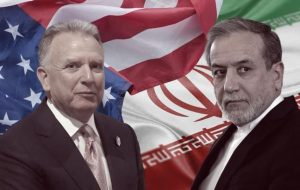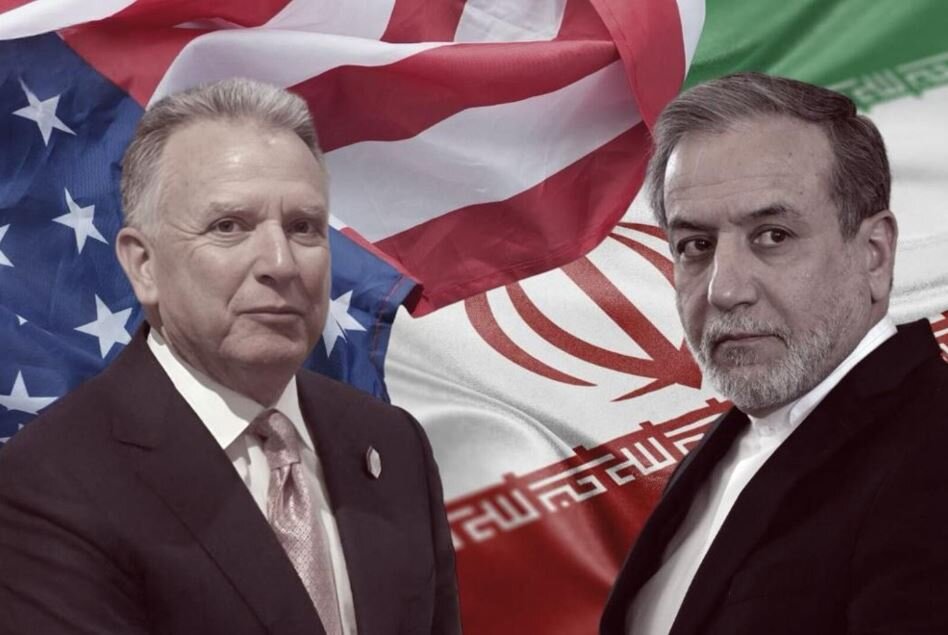West Asia is a stage for Iranian diplomacy; Muscat is the first stop
TEHRAN – In a tense regional atmosphere where diplomacy often takes a backseat to power politics, the recent indirect talks between Iran and the United States in Muscat signal a return to rationality in global equations. Conducted discreetly yet transparently under the professional stewardship of Iran’s Ministry of Foreign Affairs, these negotiations showed several clear


TEHRAN – In a tense regional atmosphere where diplomacy often takes a backseat to power politics, the recent indirect talks between Iran and the United States in Muscat signal a return to rationality in global equations.
Conducted discreetly yet transparently under the professional stewardship of Iran’s Ministry of Foreign Affairs, these negotiations showed several clear signs of diplomatic progress and a shift in tone from the American side. In nine key points, I analyze the significance of these recent developments and what lies ahead:
Location determined by Iran: a sign of strength
Holding the talks in the Omani capital was not a neutral choice—it was the result of Iran’s proactive diplomacy. The fact that the United States came to West Asia to talk means they accepted that Iran sets the terms. This choice of venue is a clear indication of Iran’s upper hand in the negotiations and its considerable influence in regional dynamics.
The Witkoff appointment: A sign of changed approach
Steve Witkoff, a real estate attorney and a close associate of Donald Trump, represented the American side. Unlike the typical choice of seasoned political figures for such negotiations, selecting someone without political ambition or diplomatic history reveals an intent to engage in focused, result-oriented dialogue.
Israeli journalist Emily Schrader’s ridicule of Witkoff, calling him “dangerously naive,” and extremist media like Terror Alarm attacking him only reveal Tel Aviv’s frustration. Netanyahu’s visible discomfort during his recent meeting with Trump, following the announcement of the talks, further underscored Israel’s concern.
Araghchi: a Symbol of composure and credibility
Representing Iran was Dr. Seyed Abbas Araghchi, a seasoned diplomat known for his calm demeanor and distaste for political theatrics. His prominence within the Islamic Republic became even clearer when the Leader of the Islamic Revolution’s official publication featured Araghchi’s photo on its front page the night of the talks, captioned “Iran’s Upper Hand”—a signal of institutional trust in his negotiating path.
Positive signals from both sides
Following the meeting, both parties described the atmosphere as “constructive” and “positive.” Unusually, the White House statement lacked any threatening tone and expressed a willingness to resolve disputes through diplomacy. Trump—known for inflammatory post-meeting comments and sudden tweets—remained notably silent, a gesture more telling than words and indicative of Washington’s relative satisfaction.
Mutual respect: erosion of threat-based language
Sources close to the talks reported that the discussions were grounded in mutual respect. This simple yet powerful phrase implies that the rhetoric of threats and pressure was abandoned. Notably, there was no mention of dismantling Iran’s nuclear program—a clear recognition of Iran’s red lines.
Focus exclusively on nuclear issues
The negotiations centered solely on Iran’s nuclear activities, with no mention of its missile program. This demonstrates that the American side now understands that Iran’s defensive capabilities are non-negotiable.
Face-to-Face exchange: a tangible sign of progress
A brief in-person exchange between the delegations at the end of the meeting reflected a certain level of mutual understanding. Even a few minutes of direct dialogue at this level of diplomacy is highly significant—especially given the American insistence on face-to-face engagement.
Outlook toward October
As October approaches, the risk of the European Troika—particularly France—activating the snapback mechanism increases.
Yet, if the Muscat negotiations proceed and yield concrete outcomes, not only might snapback sanctions be postponed, but a pathway for America’s return to the nuclear deal could also emerge. These developments mark a shift from the coercive atmosphere of the Trump era toward a more diplomatically rational global posture.
A Chance for peace and investment
The Muscat negotiations were not merely about nuclear issues—they opened a window toward a new regional atmosphere based on reason, dialogue, and peace. If this approach continues with the same prudence and consistency, it could prevent future economic and security crises while enabling the Islamic Republic to propose frameworks for joint economic cooperation and investment.
Islamic republic of Iran ,With its robust infrastructure, educated and youthful workforce, unique geopolitical position, and vast natural resources, can truly become the “investment paradise” of the region. Should the relative calm brought on by these talks hold, this year may well become a turning point in realizing the slogan “The Year of Investment in Production.” Rather than a battleground for destructive rivalry, the region could evolve into a platform for fruitful economic and cultural collaboration.
* Minoo Khaleghi is a Jurist and political analyst
